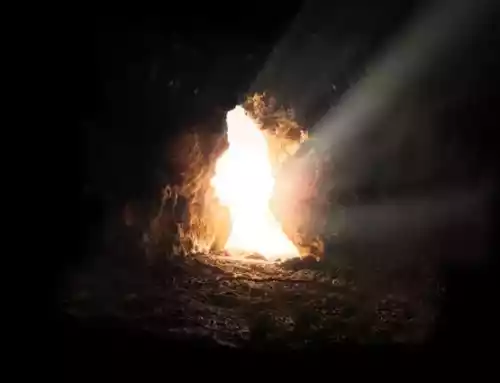What is right? What should I be doing? Am I doing the right thing? Am I doing this well? What do people think of me? Why am I so tired? So afraid? So confused? Why am I so angry? Why does nothing seem to work out for me?
These are the questions of a lost person. The world is a weird and complicated place. And we all feel a little lost in it. How are we supposed to know what to do, what to think, and how to be? Every road feels like a dead end, of one kind or another. Even celebrity. Our greatest successes are plagued by a lack of finality and surety about what happens next.
Why is it this way? Why do you feel perpetually lost?
Am I Lost?
Some of you may be quite sure this does not apply to you. “I’m not lost!” You are the confident type that in my experience is trying to overcompensate for feeling lost by a deep surety they are not.
This is one of the reasons people are so angry at others. It is much easier to think of how lost others are, to focus on how they need to wake up and get back on track, than it is to acknowledge it within ourselves. Someone once told me that there are two types of annoying behaviors others do – the things that really bother me and the things that don’t. “The difference,” he said, “is the ones that really bother me, the ones I get enraged about and can’t shrug off, the ones I complain about over and over, are because they remind me of something in myself I want to fight to get rid of.”
When I was in college, back when maps were on paper, I was driving to meet a friend. And I got lost. But I didn’t realize I was lost for a while. I just continued to drive on in the wrong direction, music blaring, in blissful ignorance.
Once I finally figured out I was lost, I was snapped into high alert. I checked my maps, pulled over to ask for directions, called my friend, etc.
All of this to say that some of us are so perpetually lost we have settled into a certain kind of surety against being lost. There are very few who truly feel as though they are living on vision, in alignment with their values. The rest of us are hiding, masking, or diverting our confusion onto others.
What to Do Next
The reason we all feel at least a little lost is because life is mysterious. There is no formula to figuring things out. Even religion does not provide the certainty it claims. Faith, by definition, is a leaning in to the mystery. It is a resolution of sorts, but not a solution. It doesn’t eliminate the uncertainty. However, it highlights our choices in its midst.
The thing that makes us different from all other animals is our self-awareness. It is a great gift. And it is a great curse. We are often so aware of ourselves, we don’t know how to do anything else. We are neurotic. Worried that what we think about ourselves doesn’t match what others think.
It is a difficult place to be.
One of the reasons naming a Transcendent There, understanding our values, and being honest about our Here are all so valuable is because it helps to untangle just a bit of this mystery. It does not undo the uncertainty. Life is still enigmatic and complicated. What it does do is help to put language to the journey.
We are trying to be the best version of ourselves, longing for a life that is full of purpose and meaning. We also want to serve and help others. There are, thirdly, things bigger than ourselves that we desperately want to participate in for their own good. These strands all weave together, sometimes crashing into one another, sometimes complementing one another, and sometimes bleeding together so much it is hard to tell any distinction.
There-Here-Path is a tool to help us put these complicated realities into a framework we can do something with. To feel a little less lost. A little less directionless.
It won’t solve or eliminate all of life’s difficulties, but it will put those challenges into proper perspective. Doing so, unlocks hope and opportunity. Even in the midst of confusion.





